
History
The G20 is the rearmost in a series of post–World War II enterprises aimed at the transnational collaboration of profitable policy, which include institutions similar as the”Bretton Woods halves”, the International Monetary Fund, and the World Bank, and what’s now the World Trade Organization. The G20 was prefigured at the Cologne Summit of the G7 in June 1999 and formally established at the G7 Finance Ministers’ meeting on 26 September 1999 with an initial meeting on 15 – 16 December 1999 in Berlin. Canadian finance minister Paul Martin was chosen as the first president and German finance minister Hans Eichel hosted the initial meeting.
A 2004 report by Colina. Bradford and JohannesF. Linn of the Brookings Institution asserted the group was innovated primarily at the action of Eichel, the concurrent president of the G7. Still, Bradford latterly described also-Finance Minister of Canada (and unborn Prime Minister of Canada) Paul Martin as “the pivotal mastermind of the conformation of the G-20 at finance minister position”, and as the bone who latterly” proposed that the G-20 countries move to leaders position summits”. Canadian academic and journalistic sources have also linked the G20 a design initiated by Martin and his American counterpart also Treasury Secretary Larry Summers. All admit, still, that Germany and the United States played a crucial part in bringing their vision into reality. Martin and Summers conceived of the G20 in response to the series of massive debt heads that had spread across arising requests in the late 1990s, beginning with the Mexican peso extremity and followed by the 1997 Asian fiscal extremity, the 1998 Russian fiscal extremity, and ultimately impacting the United States, most prominently in the form of the collapse of the prominent barricade fund Long- Term Capital Management in the afterlife of 1998. It illustrated to them that in a fleetly globalizing world, the G7, G8, and the Bretton Woods system would be unfit to give fiscal stability, and they conceived of a new, broader endless group of major world husbandry that would give a voice and new liabilities in furnishing it. The G20 class was decided by Eichel’s Deputy Caio Koch-Weser and summers’ deputy Timothy Geithner. According to the political economist Robert Wade
“Geithner and Koch-Weser went down the list of countries saying, Canada in, Portugal out, South Africa in, Nigeria and Egypt out, and so on; they transferred their list to the other G7 finance ministries, and the assignations to the first meeting went out.”
The G20’s primary focus has been the governor of the global frugality. Summit themes have varied from time to time. The theme of the 2006 G20 clerical meeting was “Building and Sustaining Substance”. The issues bandied included domestic reforms to achieve “sustained growth”, global energy and resource commodity requests, reform of the World Bank and IMF, and the impact of demographic changes due to a geriatric world population.
In 2007, South Africa hosted the secretariat with Trevor. Manuel, South African Minister of Finance as speaker of the G20.
In 2008, Guido Mantega, Brazil’s Minister of Finance, was the G20 speaker and proposed dialogue on competition in fiscal requests, clean energy, profitable development, and financial rudiments of growth and development.
On 11 October 2008 after a meeting of G7 finance ministers, US President George W. Bush stated that the coming meeting of the G20 would be important in chancing results to the burgeoning profitable extremity of 2008.
Summits
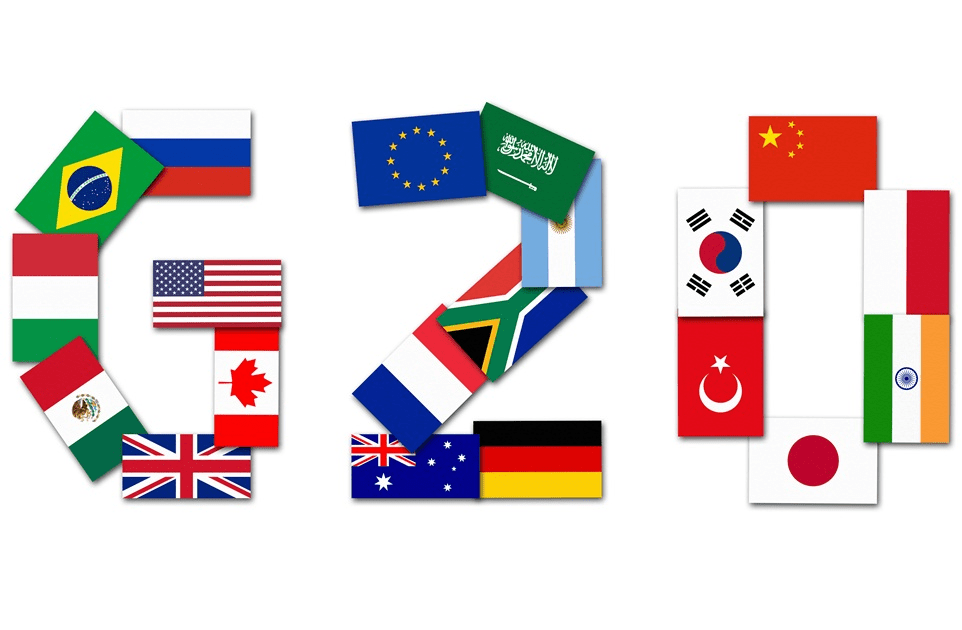
The Summit of G20 Finance Ministers and Central Bank Governors, who prepare the leaders’ peak and apply their opinions, was created as a response both to the fiscal extremity of 2007 – 2008 and to a growing recognition that crucial arising countries weren’t adequately included in the core of global profitable discussion and governance. Also, G20 summits of heads of state or government were held.
After the 2008 debut peak in Washington, DC, G20 leaders met twice a time in London and Pittsburgh in 2009 and in Toronto and Seoul in 2010.
Since 2011, when France chaired and hosted the G20, the summits have been held only formerly a time. The 2016 peak was held in Hangzhou, China, the 2017 peak was held in Hamburg, Germany, and the 2018 peak was held in Buenos Aires, Argentina.
Several other clerical-position G20 meetings have been held since 2010. Agriculture clerical meetings were conducted in 2011 and 2012; meetings of foreign ministers were held in 2012 and 2013; trade ministers met in 2012 and 2014, and employment clerical meetings have taken place annually since 2010.
In 2012, the G20 Ministers of Tourism and Heads of Delegation of G20 member countries and other invited States, as well as representatives from the World Travel and Tourism Council (WTTC), World Tourism Organization (UNWTO), and other organizations in the Travel & Tourism sector, met in Mérida, Mexico, on May 16 at the 4th G20 meeting and concentrated on tourism as a means to Job Creation. As a result of this meeting and The World Travel & Tourism Council’s Visa Impact Research, latterly on, the Leaders of the G20, convened in Los Cabos on 18 – 19 June, would honor the impact of Travel & Tourism for the first time. That time, the G20 Leaders Declaration added the following statement “We honor the part of trip and tourism as a vehicle for job creation, profitable growth, and development, and, while feting the autonomous right of States to control the entry of foreign citizens, we will work towards developing trip facilitation enterprise in support of job creation, quality work, poverty reduction, and global growth.”
In March 2014, the former Australian foreign minister Julie Bishop, when Australia was hosting the 2014 G20 peak in Brisbane, proposed to ban Russia from the peak over its part in the 2014 Crimean extremity. The BRICS foreign ministers latterly reminded Bishop that “the trust of the G20 belongs to all Member States inversely and no one Member State can unilaterally determine its nature and character.”
In 2016, the G20 framed its commitment to the 2030 Docket (Sustainable Development Goals) in three crucial themes; the creation of strong sustainable and balanced growth; protection of the earth from declination; and incubating cooperation with low-income and developing countries. At the G20 Summit in Hangzhou, members agreed on an action plan and issued a high-position principles document to member countries to help grease the docket’s perpetration.
Japan hosted the 2019 peak; the 2020 peak was to be held in Saudi Arabia but was held nearly on 21 – 22 November 2020 due to the COVID-19 epidemic under the administration of Saudi Arabia. The G20 (2021) Rome summit was held in Rome, the capital of Italy, from 30-31 October 2021.
Organization

The G20 operates without an endless secretariat or staff. The group’s president rotates annually among the members and is named from a different indigenous grouping of countries. The peremptory president establishes a temporary secretariat for the duration of its term, which coordinates the group’s work and organizes its meetings. The 2019 president was Japan, which hosted the 2019 peak in Osaka. The current president is held by Italy. The 2021 peak is planned to be held in Italy. 2022, 2023 and 2024 summits will be hosted by Indonesia, India and Brazil independently.
Proposed endless secretariat.
In 2010, President of France Nicolas Sarkozy proposed the establishment of an endless G20 secretariat, analogous to the United Nations. Seoul and Paris were suggested as possible locales for its headquarters. Brazil and China supported the establishment of a secretariat, while Italy and Japan expressed opposition to the offer. South Korea proposed a “cyber secretariat” as avolition. It has been argued that the G20 has been using the OECD as a secretariat.
Members
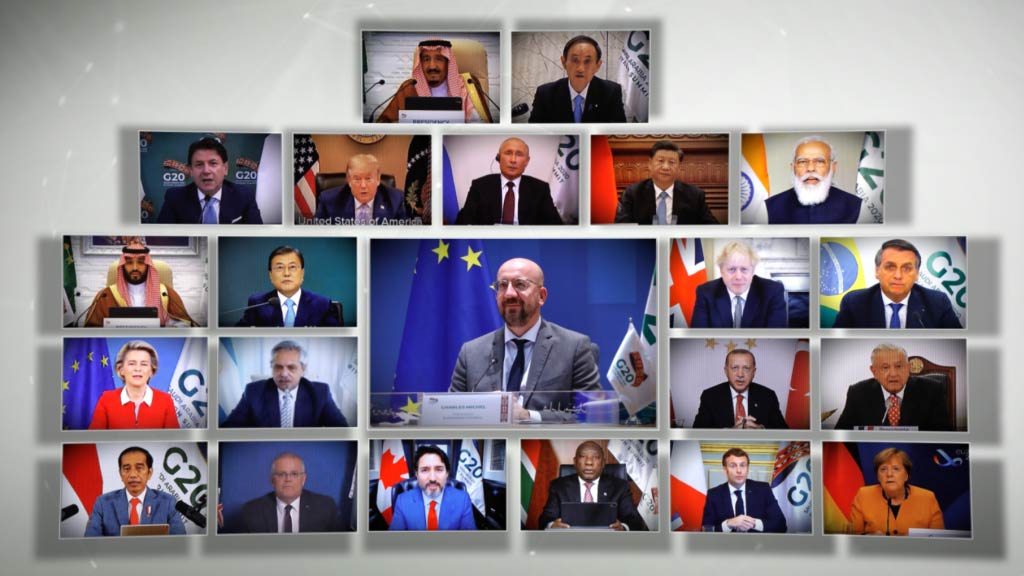
As of 2021, there are 20 members of the group Argentina, Australia, Brazil, Canada, China, the European Union, France, Germany, India, Indonesia, Italy, Japan, Mexico, Russia, Saudi Arabia, South Africa, South Korea, Turkey, the United Kingdom, and the United States. Spain, the United Nations, the World Bank, the African Union, and other associations are endless guest companies.
Representatives include, at the leader’s summits, the leaders of nineteen countries and the European Union, and, at the clerical- position meetings, the finance ministers and central bank governors of nineteen countries and of the European Union.
In addition, each time, the G20’s guests include Spain; the Chair of ASEAN; two African countries (the president of the African Union and a representative of the New Partnership for Africa’s Development (NEPAD) and a country ( occasionally further than one) invited by the administration, generally from its region.
In addition to these 20 members, the principal superintendent officers of several other transnational forums and institutions share in meetings of the G20. (2) These include the managing director and President of the International Monetary Fund, the President of the World Bank, the International Monetary and Financial Committee, and the Chairman of the Development Assistance Committee.
The G20’s class doesn’t reflect exactly the 20 largest husbandries of the world in any given time; as the association states
In a forum similar to the G20, it’s particularly important for the number of countries involved to be confined and fixed to ensure the effectiveness and durability of its exertion. There are no formal criteria for the G20 class and the composition of the group has remained unchanged since it was established. Given the objects of the G20, it was considered important that countries and regions of systemic significance for the transnational fiscal system be included. Aspects similar to geographical balance and population representation also played a major part.
As of 2021, all 19 member nations are among the top 33 husbandries in terms of nominal GDP, according to the International Monetary Fund (IMF). (56) Among the major husbandry, not represented are Iran (ranked 17th), Switzerland (20), Taiwan (22), Thailand (26), Nigeria (29), Israel (30), Norway (32), and Bangladesh (33) despite numerous ranking advanced than some members. The Netherlands (18), Poland (23), Sweden (24), Belgium (25), Ireland (27), and Austria (28) are included only as part of the EU, and not singly. Spain (14) has shared as an” endless guest dweller” in every peak since the group’s commencement; as of 2010, the Spanish government’s policy is to not request sanctioned class.
When measured by copping power equality (PPP), (59) (60) all 19 members are among the world’s top 32 husbandries, according to 2021 data by the IMF. Of these major husbandry, Taiwan (ranked 18th), Egypt (21), Thailand (22), Iran (23), Pakistan (24), Vietnam (25), Nigeria (26), the Philippines (29), Malaysia (30) and Bangladesh (31) aren’t G20 members, while Poland (20) and the Netherlands (27) are only included as EU members and Spain (16) as an endless guest dweller.
Still, in a list of average GDP, calculated for the times since the group’s creation (1999 – 2008) at both nominal and PPP rates, only Iran, the Netherlands, Nigeria, Poland, Spain, Taiwan, and Thailand appear above any G20 member in both lists contemporaneously.
Part of Asian countries
A 2011 report released by the Asian Development Bank (ADB) prognosticated that large Asian husbandry similar to China and India would play a more important part in global profitable governance in the future. The report claimed that the rise of arising request husbandry heralded a new world order, in which the G20 would come to the global profitable steering commission. The ADB likewise noted that Asian countries had led the global recovery following the late-2000s recession. It prognosticated that the region would have a lesser presence on the global stage, shaping the G20’s docket for balanced and sustainable growth through strengthening intraregional trade and stimulating domestic demand.
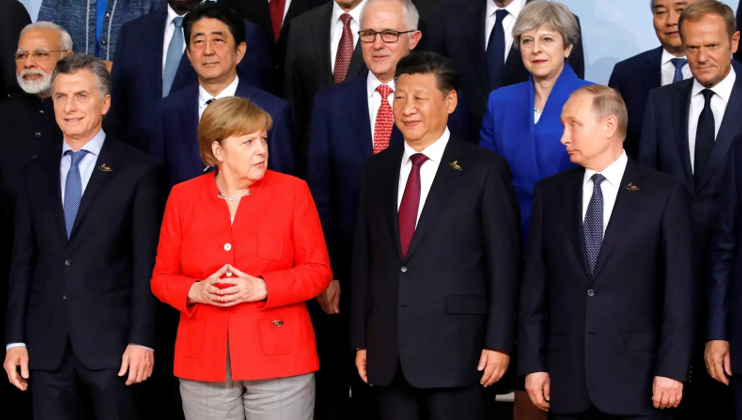
Invites (Permanent Guest)
Generally, several countries that are not endless members of the G20 are extended appointments to partake in the summits. Each time, the Chair of the Association of Southeast Asian Nations; the Chair of the African Union; and a representative of the New Partnership for Africa’s Development are invited in their capacities as leaders of their organizations and as heads of government of their home countries. Also, the leaders of the Financial Stability Board, the International Labor Organization, the International Monetary Fund, the Organization for Economic Co-operation and Development, the United Nations, the World Bank Group, and the World Trade Organization are invited and share in pre-peak planning within the policy horizon of their separate organization. Spain is an endless- member resides.
Other companies are chosen by the host country, generally one or two countries from its region. For illustration, South Korea invited Singapore. International organizations which have been invited in the formerly include the Asia-Pacific Economic Cooperation (APEC), the Basel Committee on Banking Supervision (BCBS), the Commonwealth of Independent States (CIS), the Eurasian Economic Community (EAEC), the European Central Bank (ECB), the Food and Agriculture Organization (FAO), the Global Governance Group (3G) and the Gulf Cooperation Council (GCC). Previously, the Netherlands had a similar status to Spain while the rotating administration of the Council of the European Union would also admit an engagement, but only in that capacity and not as their own state’s leader (analogous as the Czech premiers Mirek Topolánek and Jan Fischer during the 2009 summits).
G20 Agenda
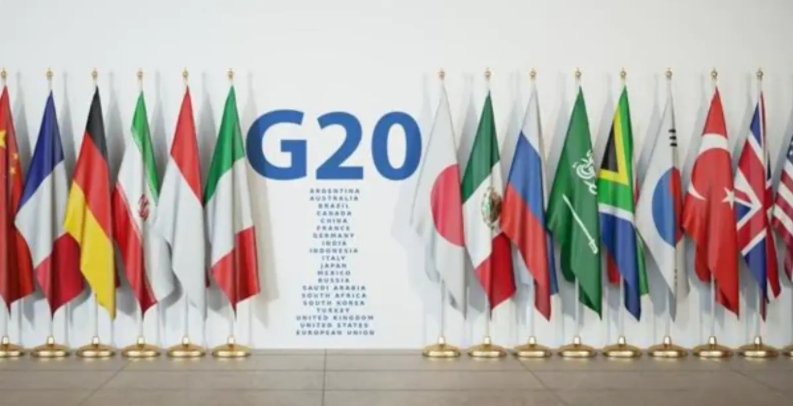
Fiscal Focus
The original G20 docket, as conceived by US, Canadian and German policymakers, was veritably important concentrated on the sustainability of autonomous debt and global fiscal stability, in an inclusive format that would bring in the largest developing husbandry as equal mates. During a peak in November 2008, the leaders of the group pledged to contribute trillions to transnational finance associations, including the World Bank and IMF, substantially for reestablishing the global fiscal system.
Since its commencement, the recreating themes covered by G20 peak actors have related in precedence to global profitable growth, transnational trade, and fiscal request regulation.
Inclusive Growth
The G20 countries regard for nearly 75 of the global carbon emigrations. After the relinquishment of the UN Sustainable Development Goals and the Paris Climate Agreement in 2015, further” issues of global significance” were added to the G20 docket migration, digitization, employment, healthcare, the profitable commission of women, and development aid. Despite pledges, G20 nations subsidized reactionary energy companies over$3.3 trillion between 2015 and 2021.
Interrelated Themes
- Wolfgang Schäuble, German Federal Minister of Finance, has claimed on the connected nature of the issues facing G20 nations, be they purely fiscal or experimental, and the need to reach effective, cross-cutting policy measures “Globalization has lifted hundreds of millions out of poverty, but there’s also a growing rise in frustration in some diggings development, (public) security and migration are all interlinked.
Criticism

Exclusivity Of Class
- Although the G20 has stated that the group’s” profitable weight and broad class gives it a high degree of legality and influence over the operation of the global frugality and fiscal system”, its legality has been challenged. A 2011 report for the Danish Institute for International Studies criticized the G20’s exclusivity, particularly pressing its underrepresentation of African countries and its practice of inviting spectators from non-member countries as a bare” concession at the perimeters”, which doesn’t grant the organization emblematic legality. Concerning the class issue, former US President Barack Obama noted the difficulty of pleasing everyone “Everybody wants the lowest possible group that includes them. So, if they are the 21st largest nation in the world, they want the G21, and suppose it’s largely illegal if they’ve been cut out.
Norwegian Perspective
In line with Norway’s emphasis on inclusive transnational processes, the United Nations and the UN system, in a 2010 interview with Der Spiegel, former Norwegian foreign minister Jonas Gahr Støre called the G20″ one of the topmost lapses since World War II” as 173 nations who are all members of the UN aren’t among the G20. This includes Norway, a major advanced frugality and the seventh-largest contributor to UN transnational development programs, which isn’t a member of the EU and therefore isn’t represented in the G20 indeed laterally. (9) Norway, like other similar nations, has little or no voice within the group.
The G20 is a tone-appointed group. Its composition is determined by the major countries and powers. It may be more representative than the G7 or the G8, in which only the richest countries are represented, but it’s still arbitrary. We no longer live in the 19th century, a time when the major powers met and redrew the chart of the world.
Spanish Position On Class
- The Spanish government’s policy is to not request sanctioned classes. Despite being hit hard by the profitable extremity after 2008, Spain is still the world’s thirteenth largest frugality by nominal GDP (the fourth in the European Union) and fifteenth largest by copping power equality, easily exceeding the figures of several current members of the G20 similar as Argentina or South Africa.
Polish Bournes
In discrepancy with the Spanish position, the Polish government has constantly asked to join the G20.
Before the 2009 G20 London peak, the Polish government expressed an interest in joining with Spain and the Netherlands and condemned an “organizational mess” in which many European leaders speak in the name of the entire EU without licit authorization in cases that belong to the European Commission.
During a 2010 meeting with foreign diplomats, Polish chairman Lech Kaczyński said. Polish frugality is according to our data an 18th world frugality. The place of my country is among the members of the G20. This is a veritably simple hypothetical originally – it results from the size of the Polish frugality, secondly – it results from the fact that Poland is the biggest country in its region and the biggest country that has endured a certain story. That story is a political and profitable metamorphosis.
In 2012, Tim Ferguson wrote in Forbes that switching Argentina for Poland should be considered; claiming that the Polish frugality was headed toward a leadership part in Europe and its class would be more licit. An analogous opinion was expressed by Marcin Sobczyk in the Wall Street Journal, Mamta Murthi from the World Bank said, ‘To be in a club’, what Poland can do is to bear as if it formerly is in the club it wants to join.
In 2014, consulting company Ernst & Young published its report about optimal members for G20. After assaying trade, institutional and investment links Poland was included as one of the optimal members.
Global Governance Group (3G) response:
- In June 2010, Singapore’s representative to the United Nations advised the G20 that its opinions would affect” all countries, big and small”, and asserted that prominent non-G20 members should be included in fiscal reform conversations. (85) Singapore later took a commanding part in organizing the Global Governance Group (3G), an informal grouping of 30non-G20 countries (including several microstates and numerous Third World countries) with the end of inclusively channelizing their views into the G20 process more effectively.
Foreign Policy Reviews
The American magazine Foreign Policy has published papers condemning the G20, in terms of its top function as volition to the exclusive G8. It questions the conduct of some of the G20 members and advances the notion that some nations shouldn’t have class in the first place. Likewise, with the goods of the Great Recession still ongoing, the magazine has blamed the G20’s sweats to apply reforms of the world’s fiscal institutions, imprinting similar sweats as failures.
The G20’s prominent class gives it a strong input on global policy despite lacking any formal capability to apply rules. There are controversies over the legality of the G20, and examines its organization and the efficacy of its affirmations.
The G20’s translucency and responsibility have been questioned by critics, who call attention to the absence of a formal duty and the fact that the most important G20 meetings are unrestricted- door. In 2001, the economist Frances Stewart proposed an Economic Security Council within the United Nations as a volition to the G20. In such a council, members would be tagged by the General Assembly grounded on their significance to the world frugality, and the donation they’re willing to give to world profitable development.
The cost and extent of peak-related security is frequently a contentious issue in the hosting country, and G20 summits have attracted protesters from a variety of backgrounds, including information activists, opponents of fractional- reserve banking, and anti-capitalists.
Fossil Energy Subventions
- The G20 countries regard for nearly 75 of the global carbon emigrations and promised in 2009 to phase out’ hamstrung subventions’.
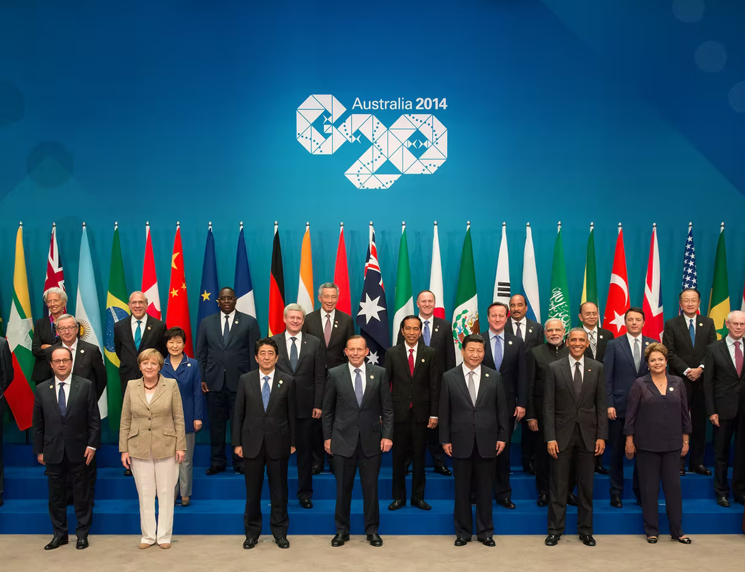
Top 13 Interesting Facts About The G20 Summit
The full name of G20: The Group of Twenty (G20) is an important multilateral forum for global economic cooperation.
The G20 is a forum of twenty world’s leading industrialized and emerging economies.
G20 summits provide the world’s most important leaders with the opportunity to discuss the issues related to the global economy in an informal setting.
The G20 was first established in 1999, in response to criticism that the Group of Seven (G7) was outdated and overly restrictive.
The members of the G20 include the European Union and 19 other countries, including India. G20 countries represent around 85% of global gross domestic product and over 75% of global trade. They form two-thirds of the world’s population.
The Leaders’ Summit is the climax of the G20 process.
The Summit, ministerial meetings, Sherpa meetings (in charge of carrying out negotiations and building consensus among Leaders), working groups, and special events are organized throughout the year.
The Summit is the final stage, at the Leaders’ level, of the intense work carried out within these various groups throughout the year.
Group of 20 or (G-20) is the main forum for deciding the opinion on much international economic cooperation and some other critical issues like terrorism, human trafficking, global warming etc.
It is worth mentioning that G 20 members represent around 85% of global GDP, over 75% of global trade, and two-thirds of the world’s population.
The G 20 Presidency rotates annually according to a system that ensures a regional balance over time.
The G 20 does not have a permanent secretariat. Instead, the G 20 president is responsible for bringing the G20 agenda in consultation with other members. G20 is an informal political forum.
The very first G-20 summit was held in Washington, D.C. (United States) from 14–15 November 2008.






